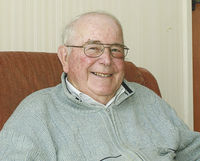Features
Mgsr John Broadbent
1 December 2011
 As with St John of the Cross, St Francis de Sales was a saint of the Counter-reformation, the Catholic movement which opposed the 16th century Protestant Reformation by trying to purify the Church of many of the evils and comforts it had grown into in the late Middle Ages.
As with St John of the Cross, St Francis de Sales was a saint of the Counter-reformation, the Catholic movement which opposed the 16th century Protestant Reformation by trying to purify the Church of many of the evils and comforts it had grown into in the late Middle Ages.
Of noble birth
St Francis was born in the Duchy of Savoy in 1567 to a noble family. His father sent him to the best schools and university. As a teenager Francis was already a person of great prayer and early on he felt a call to the priesthood. However, in his 18th year all faith and devotion seemed to desert him and he endured months of anguish, convinced he had lost God’s grace and was doomed to hell for all eternity.
He turned to Our Lady for help and finally made an act of heroic love to God saying ‘Lord, if I am never to see you in heaven, this at least grant me, that I may never curse or blaspheme your name. If I may not love you in the other world – for in hell none praise you – let me at every instant of my brief existence here love you as much as I can.’ He rose to his feet, his despair and scruples gone. This trial taught him early on to understand and deal tenderly with the spiritual difficulties and temptations of others.
Ordination
When he graduated as a Doctor of Law, he returned to the life his father wanted for him. But when he saw how determined Francis was to become a priest, he grudgingly gave permission and Francis was ordained a priest in 1593. He began a remarkable apostolate especially among the poor and preached, unusually for the times, simple and down-to-earth sermons. His motto was ‘You can gain more souls for God by a spoonful of honey than a barrel full of vinegar.’
His life was soon to change. The great reformer of the Protestant Reformation, John Calvin, had operated from the City of Geneva and, in the nearby district of Chablais by Lake Geneva, many Catholics had turned Calvinist. Francis volunteered to try to win them back to the faith. The bishop rejoiced.
At first, Francis was forced to live under the governor’s protection. There were two attempts on his life and once he was hounded by a pack of wolves and almost died after escaping up a tree for the night in subalpine temperatures. He began to write leaflets that explained simply Catholic teaching. Little by little he won a considerable number of people back.
When the bishop visited four years later, so changed was the mood that Devotions could be held. The bishop saw what a gem he had in Francis and nominated him to Rome where the pope appointed him coadjutor bishop of Geneva. Francis’ foray into pamphlet writing led him to more substantial writing. His works on ‘Introduction to the Devout Life’ and ‘Treatise on the Love of God’ became spiritual classics and are still reprinted.
He became much sought after for his preaching and King Henry IV tried to entice him with a rich bishopric to live near Paris. Francis replied that he loved his mountain area and never wished to move.
A new congregation of nuns
With St Jane de Chantal in 1610 he founded the Visitation nuns who have always followed his spirituality. When people challenged him about being too indulgent towards sinners, he replied that meekness was especially loved by God and ‘yet there is nothing to which he so earnestly exhorts all, as to be “meek and humble of heart”. Why would you hinder me from obeying the command of my Lord?’ When prodigals returned to him he used to say ‘God and I will help you; all I require of you is not to despair: I shall take on myself the burden of the rest’.
In 1622 the Duke of Savoy asked Francis to accompany him to meet King Louis XIII at Avignon. Francis seemed to have a premonition of his death and left all his papers and duties in order.
At Avignon crowds sought him and churches begged him to preach, but he was not well. On his return journey he stopped at Lyons and during Advent and Christmas in bitterly cold weather he continued his preaching and pastoral work. He lived in a cold gardener’s cottage at the Visitation convent and his health grew worse. He died on the feast of the Holy Innocents 1622.
Amid the thousands of tributes at his death, one of the most sincere was that of a Calvinist minister. ‘If we honoured any man as a saint, I know no one since the days of the apostles more worthy of it than this man.’
St Francis de Sales was beatified in 1662 and his feast was fixed on January 29, the anniversary of his body being brought back to his home country. He was declared a doctor of the Church in 1877 and Pius XI named him patron saint of journalists. His spirituality shows how ordinary life ‘in the world’ can be made holy without being very different on the surface.
See also St John of the Cross